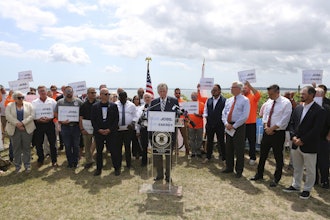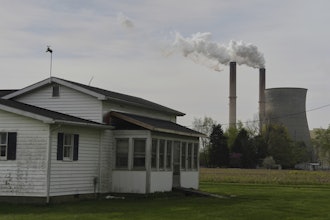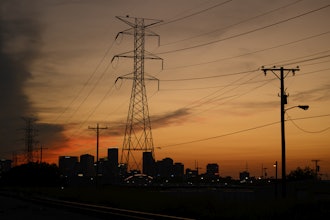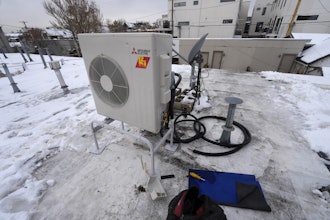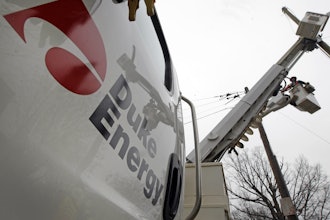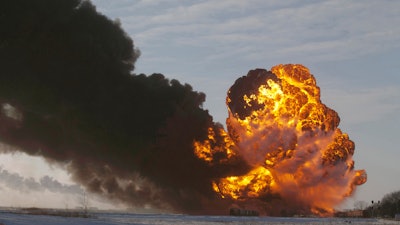
BILLINGS, Mont. (AP) — The Trump administration on Monday moved to block a Washington state law that imposed safety restrictions on oil shipments by rail following a string of explosive accidents.
The Department of Transportation determined federal law preempts the Washington law adopted last year, which mandated crude from the oil fields of the Northern Plains have more of its volatile gases removed prior to being loaded onto rail cars.
The volatility of oil trains drew widespread public attention following several explosive derailments, including one in 2013 in Lac-Megantic, Quebec that killed 47 people. Washington’s law was aimed at boosting safety for schools and homes that are near passing oil trains.
With backing by the rail and oil industries, the attorneys general for Montana and North Dakota had argued the law effectively banned crude from their states. In July, they petitioned the Trump administration to overrule the law.
Federal officials said Monday that the removal of volatile gases was not a “statistically significant factor” in the severity of oil train crashes.
“A state cannot use safety as a pretext for inhibiting market growth or instituting a de facto ban on crude oil by rail within its borders,” wrote Paul Roberti, chief counsel of the Transportation Department’s Pipeline and Hazardous Materials Safety Administration.
North Dakota is the nation’s No. 2 oil producer behind Texas and produced about 1.4 million barrels of oil daily in February, including about 300,000 barrels daily that was shipped by rail, according to the North Dakota Pipeline Authority. The February numbers are the latest available and came before sliding demand and the coronavirus led drillers to shut down more than 40% of their wells.
Montana Attorney General Tim Fox said it was “a victory for Montanans and the citizens of other oil-rich states.”
He said Washington had illegally attempted to “dictate what commodities other states can transport to market."
Washington state officials and environmentalists who sided with them in the dispute said the restrictions did not directly regulate crude and instead addressed only the loading and unloading of oil within Washington. They contended railroads still could carry crude into the state and the restrictions meant only that they would have to make sure it was safe to transport.
A spokesperson for Washington Gov. Jay Inslee said state officials were disappointed with Monday's 74-page decision.
“Washington’s law helps protect the public from the inherent risks of transporting oil by rail by decreasing explosion risk in the event of an oil train derailment," said Tara Lee, Inslee's communications director. “Public health remains our top priority and we are considering our options."
An attorney with the environmental firm Earthjustice said the state had taken a “modest step” to reduce the risks of moving crude by rail and accused the Trump administration of stretching federal law to knock down the effort.
“In Trump’s America, states are on their own to protect the health and safety of their citizens — until it bumps against the wishes of the oil industry," said attorney Jan Hasselman.
The American Petroleum Institute, Association of American Railroads and other groups had urged the administration to block Washington state's law.
“There is nothing unusual about the volatility of Bakken crude oil,” said Ron Ness, president of the North Dakota Petroleum Council, which represents more than 500 companies working in the state’s oil patch. “This is just one more decision verifying what we’ve known from Day 1.”










